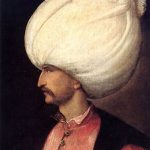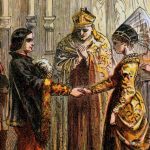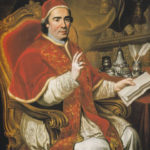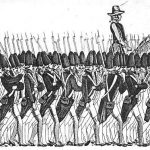In a previous post, we examined four Hanoverian Georges, one of whom (the III) lost the American colonies for Britain, thus engendering the United States of immortal memory. Here we look at one of the sons of the great womaniser Edward VII, and at his son, immortalised by his courage and his stammer; and his indefatigable lady wife, Lady Elizabeth Bowes-Lyon, of unreproachable memory.
George V was King of Great Britain and (from 1920) Northern Ireland, dependencies overseas (once known as The Empire), and Emperor of India (1910 – 36). Proud of the independence and intellectual fortitude of the House of Lords, he insisted on a concept unthinkable today – that a general election should precede any reform of them. This insistence he provided during 1911, a period when the Empire was at its zenith, through threatened by black clouds and ill omen.
It was George V who brought together party leaders, at the Buckingham Palace Conference, where Irish home rule was discussed. He accepted with tolerance the socialist Ramsay Macdonald as Prime Minister of a minority government in 1924, and also a national or coalition government in 1924. In both he showed a distinctive element of personal choice which has been much criticised ever since by the Right. His wife was Queen Mary, a royal lady of firm tastes and strength of mind, well able to deal with her husband’s tantrums and salty language – “Bugger Bognor!” were said to be the monarch’s last well-chosen words when he was desperately ill and his wife wanted to take him to recover at this hardly-known Sussex resort. He was the unaffectionate father of Edward VIII, whom they knew as David – the king who gave up the throne because he was not allowed to marry a twice-divorced American adventuress. George V was a Victorian born in 1865; he died, mourned by the British, as a modern constitutional monarch, in 1936.
George VI might never have been king if his older brother had not been an unprincipled waster, with weak moral sense, possessing none of the sentiments a dutiful son should have, and of which his own brothers Bertie, Henry and George lacked nothing. Sadly, George Duke of York (or Bertie as he was known to his family and friends) had a serious speech defect caused by an unhappy childhood, dominating father and a frightful period of adolescence passed in the violent regime of Osborne Royal Naval college. Luckily he fell in love with and married (after two rejections) a young Scotswoman of timeless aristocracy called Elizabeth Bowes-Lyon. She took the nervous, stammering, athletic naval officer in hand, helped him to learn to speak again, and presented him with two daughters – one of them the future Elizabeth II.
Bertie succeeded reluctantly to the throne after his older brother David (King Edward VIII) renounced it when he was told by the Prime Minister, the Archbishop of Canterbury, three press lords and most of the national newspapers that he could not remain king if he married a twice-divorced American fortune hunter called Wallis Simpson.
Though George VI preferred Baldwin and Lord Halifax, he too opted for Winston Churchill as the ideal Prime Minister to see through Great Britain through the war with Hitler. At the height of the Bliz on London he and his wife refused point blank to leave London for the safety of Canada, and were bombed twice in Buckingham Palace. George, Elizabeth and Winston each went about their daily tasks armed with a loaded pistol in a holster. The future Queen Mother used to say that when the Nazis came she would sell her life dearly. They did not come, and she lived to a tremendous age (102) as the most popular Queen Mother ever.
After the War George VI supported Clement Attlee and his Labour government, and assisted in the granting of the independence of India, of which he was Emperor until 1947. He was an inveterate smoker, and died of cancer at only fifty-seven. Film fans please note that the actors Colin Firth and Helena Bonham.Carter give immaculate and wholly realistic impersonations of George VI and Queen Elizabeth in a film called The King’s Speech (2010), which deals with the extraordinary success achieved by a speech therapist (played by Geoffrey Rush) who managed to train Bertie to speak again almost without the murmur of a stammer. The film is not a tear-jerker – it is an eye-opener.









Leave A Comment